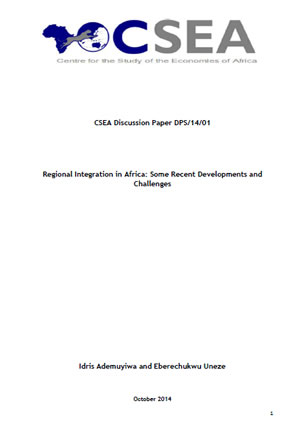Author:Idris Ademuyiwa and Eberechukwu Uneze
Publication Date: October 2014
Document Size: 8 pages
Similarly, apart from assuaging Africas greatest economic problem (i.e. the high incidence of poverty), regional integration will go a long way in addressing non-economic problems like recurring conflicts and political instability as well as weak bargaining power in the multilateral front. It is in recognition of these potentials that all countries in the region belong to at least one regional economic community (REC). In fact, the plan is to merge and consolidate the RECs in Africa to form the African Economic Community (AEC) over a period of 34 years in six phases. While these efforts are timely and have begun to yield sparse successes in terms of deepening integration and improving the wellbeing of Africans, some challenges remain.
This article attempts to identify some of the achievements that have been made in regional integration in Africa as well as areas where challenges remain. It also attempts to examine the roles that the BRICS (Brazil, Russia, India, China and South Africa) can play in the integration process.

